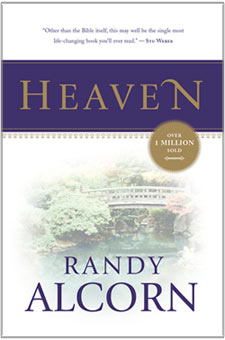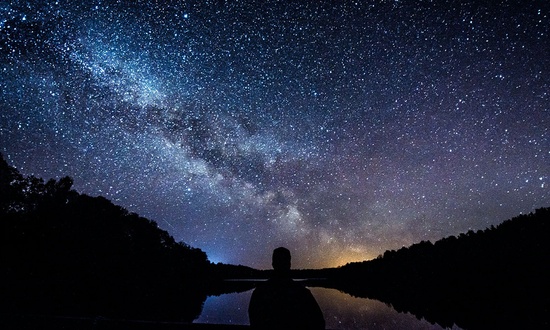R. A. Torrey said, “True thoughts of the life that is to come clothe the life that now is with new beauty and strength.”1 The operative word is “true.” Satan operates on the basis of an inverse corollary: “False thoughts of the life to come rob the life that now is of beauty and strength.”
J. C. Ryle said, “I pity the man who never thinks about heaven.”2 We could also say, “I pity the man who never thinks accurately about heaven.” (It’s our inaccurate thinking, ironically, that motivates us to think so little.)
Two-thirds of Americans believe that they will not have bodies after the resurrection.3 This is self-contradictory—like believing that after a wall has been whitewashed, it isn’t white. Resurrection means that we will have bodies. If we didn’t have bodies, we wouldn’t be resurrected.
The creeds state, “I believe in the resurrection of the body.” But many of us spiritualize the resurrection, denying its essential meaning: a permanent return to a physical existence in a physical universe. By envisioning ourselves as disembodied spirits, wraiths, we ignore what the resurrected Jesus said: “Look at my hands and my feet. It is I myself! Touch me and see; a ghost does not have flesh and bones, as you see I have” (Luke 24:39).
The doctrine of the resurrection begins with the human body, but extends far beyond it. R. A. Torrey wrote, “We will not be disembodied spirits in the world to come, but redeemed spirits, in redeemed bodies, in a redeemed universe.”4
Our view of heaven is comparable to standing out in a hallway and staring past an open door into a dark room. Getting a grasp of the resurrection and the New Earth is like stepping in and flipping on a light switch. Suddenly the shadowy images become recognizable…while our eyes have to adjust to the light, everything starts to make sense.
What does “Heaven” mean?
When we hear the word “Heaven,” there are different directions our minds can go. I’ve found they rarely go to where we’ll actually spend eternity. What we usually think of when we hear “Heaven” is the intermediate state. That’s where we go when we die. It’s the place we’ll live until the resurrection.
Where our minds rarely go is to the eternal state, where we’ll spend eternity…where we’ll live forever after the culminating event of human history that’s linked to Christ’s return—our resurrection. We’ll reign over a resurrected universe, centered on a resurrected earth, with its capital city the resurrected Jerusalem (Revelation 21:1). We will eat, drink, work, play, worship, discover, invent, travel. Civilization will be resurrected, including human cultures with distinctive ethnic traits. There will be both resurrected nature and human culture. Together these elements combine to distinguish the eternal state, where God will come down and live with his people. (If you think these claims aren’t biblically grounded, keep reading. You’re in for a surprise.)
This is where we’ll live for eternity—yet I’ve found that when they hear the word “Heaven” this is almost never what people think about. They think instead of the intermediate state prior to the resurrection, which is incomplete, awaiting the post-resurrection’s ultimate Heaven. This book is not about the immediate Heaven we go to when we die, but the ultimate Heaven where we will live forever.
Earth’s not our Home …or is it?
I used to say, “When we get to Heaven we’ll be going home for the first time.” I spoke of the paradox of how our true home is a place we’ve never been. I’ve since revised this statement because it’s misleading. The Bible teaches that our eternal home will be a place we’ve already been—earth.
True, it will be a New Earth, a transformed earth. But just as I will be able to remember my friend Steve, who will be a resurrected Steve, so I will be able to remember my home, world, earth, which will be a resurrected earth. So, as Steve will be a person I already know, earth will be a place I already know. Then—and only then—does it make sense to think of Heaven as my true home, realizing that Heaven will ultimately be on the New Earth.
Human beings were made from earth, have always lived on earth, are geared to find pleasure in the things of earth. If we think of Heaven only as the realm where angels live, there’s a real problem. We were not made from the angelic realm, nor for it. We haven’t lived in that realm. It’s unfamiliar and undesirable to us. It doesn’t resonate as “home.” There’s one place that qualifies as the only home we’ve ever known—earth. It’s the home God made for us.
 But, you may object, Jesus said he was going to prepare a place for us, and he would take us there to live with him forever (John 14:2-3). Yes. But what is that place? Revelation 21 makes it clear—it’s the New Earth. That’s where the New Jerusalem will be taken down from Heaven to reside. Only then will we be truly home—in a sense, for the first time, but in another sense, home again. Our home will seem new and fresh and we’ll feel like we’re there for the first time, yet it will be familiar because our home will be a much-improved version of the world we grew up on.
But, you may object, Jesus said he was going to prepare a place for us, and he would take us there to live with him forever (John 14:2-3). Yes. But what is that place? Revelation 21 makes it clear—it’s the New Earth. That’s where the New Jerusalem will be taken down from Heaven to reside. Only then will we be truly home—in a sense, for the first time, but in another sense, home again. Our home will seem new and fresh and we’ll feel like we’re there for the first time, yet it will be familiar because our home will be a much-improved version of the world we grew up on.
As we’ll see, the New Earth will be Heaven, for Heaven is God’s dwelling place, and God will dwell with us on the New Earth. Heaven will include earth, and be centered on earth. What’s made “new” is the place that was old and twisted. We’ll be going back to the home we always knew, the home buried beneath the scars and sickness of sin and curse, but which we sometimes caught heart-stirring glimpses of.
We will know then that what we always longed for was not to live away from earth, but to live on earth as God created it, as he meant it to be—an earth without sin, suffering and death, an earth with the full beauty we now only catch glimpses and foretastes of.
A New Earth.
For more information on the subject of Heaven, see Randy Alcorn’s book Heaven.1 R. A. Torrey, Heaven or Hell (New Kensington, PA: Whitaker House, 1985), 68.
2 J. C. Ryle, Heaven (Ross-shire, Great Britain: Christian Focus Publications, 2000), 19.
3 Time, March 24, 1997, 75; cited by Paul Marshall with Lela Gilbert, Heaven Is Not My Home: Living in the Now of God’s Creation (Nashville, TN: Word Publishing, 1998), 234.
4 Torrey, 68-69.
Photo by lucas wesney on Unsplash




